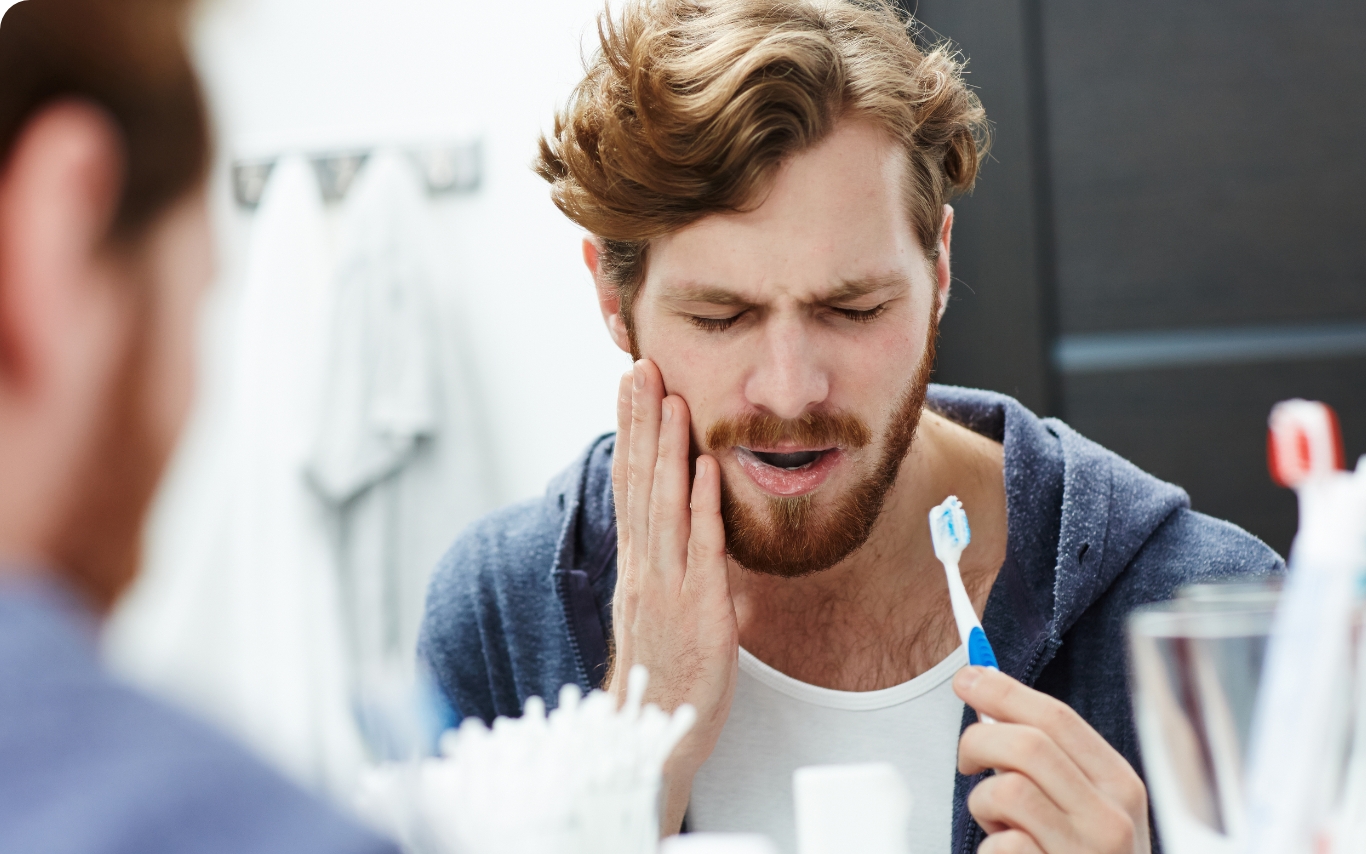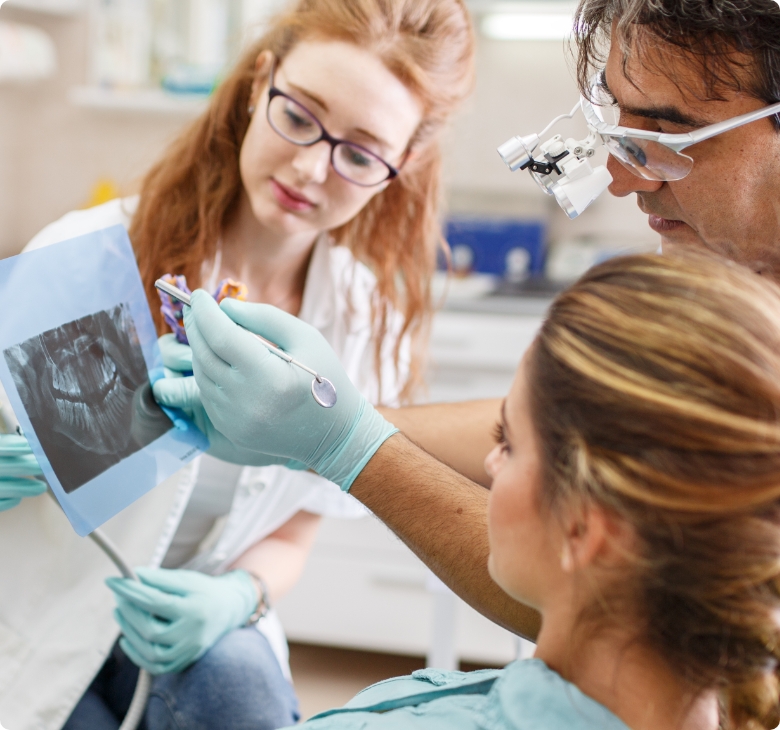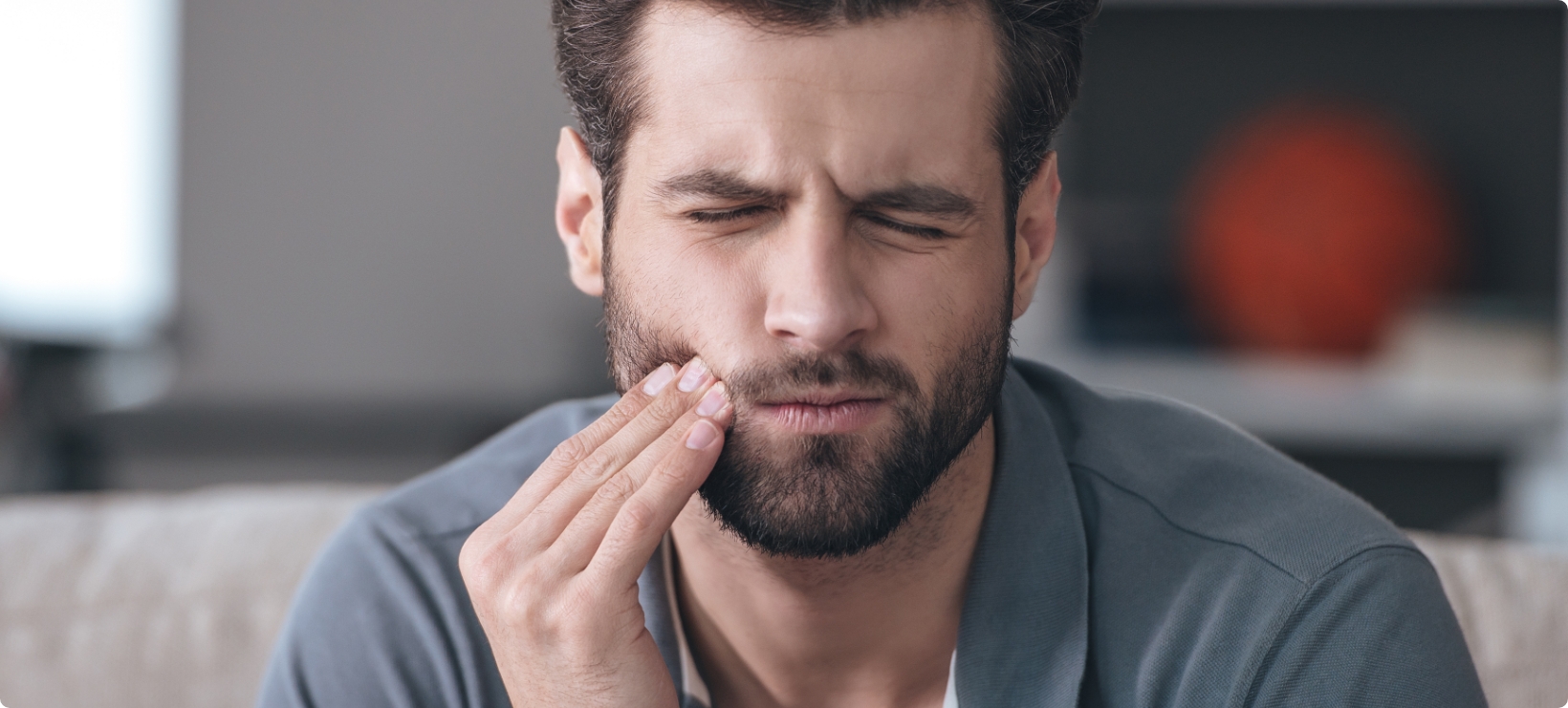Dental emergencies
To ensure these situations are quickly assessed and a solution is found to minimize their impact, we are committed to promptly treating dental emergencies.

Dental emergencies
Regular and comprehensive dental care is essential to keep your mouth healthy and in good shape. This includes a routine check-up and professional cleaning of your teeth. Despite regular check-ups, some dental emergencies require quick and specialized care. Unexpected situations may arise that pose a threat to the health, functionality and integrity of the mouth's structures. This is especially true for acute dental pain, abscesses, broken teeth and oral trauma (hits to the mouth).
To ensure these situations are quickly assessed and a solution is found to minimize their impact, at GK Dental Centre, your dentist in Brossard, we are committed to promptly treating dental emergencies. Contact us to make an appointment as soon as possible during our operating hours. While waiting to see the dentist, you can take certain actions. Below is some information to help you act appropriately, depending on the urgency of the incident and the symptoms observed.
Broken teeth
Teeth may chip or break for a variety of reasons. When this happens, it is important to contact a dentist so that he or she can take the appropriate steps to repair your tooth. To help your dentist fix the problem, you should retrieve the broken piece of tooth, if possible, and bring it to the office visit. To preserve the tooth, place it in a container with saliva, milk or water. It should be noted that each break is different and that the speed of the necessary treatment also varies.

Minor fracture :
In cases where only a fragment or corner of the tooth is missing, the situation is less urgent. However, because the fracture can increase tooth sensitivity and make your tooth more brittle and more abrasive, it is still important to schedule a visit with your dentist. Your dentist will assess the situation and work to repair the tooth. Polishing the chipped area is often sufficient.
Medium fracture :
This fracture is more severe, but the central nerve is not damaged. You may feel mild sensitivity and pain. A tooth with a medium fracture is also more susceptible to bacteria that can infiltrate towards the centre. That is why it is important to contact your dentist quickly.
Severe fracture :
This fracture affects the nerve (severed or exposed), causing pronounced sensitivity or pain. Blood or a red dot is usually observed at this point, confirming that the situation is very urgent and you should contact your dentist as soon as possible.
What to do if you experience dental pain
Contact your dentist as soon as you feel sharp pain, especially if the pain is accompanied by pus, swelling or fever (signs of an abscess). While waiting for the visit, you can manage the pain with over-the-counter pain relievers (ibuprofen or acetaminophen) and warm compresses. If you can, try to identify the source of the pain and its frequency to help the dentist in make a diagnosis. It should be stressed that a visit to the dentist is essential if you experience pain, even if the pain tends to fade. The condition causing the pain is likely still present and could get worse or spread.
Dental trauma
Certain activities, particularly sports, can subject the mouth and teeth to repeated hits and/or shocks, which can lead to effects of varying levels and severity. The recommended reaction speed therefore differs depending on the situation :
Degree of severity: Stable
If the tooth remains stable and the pain is minor and gradually fades away, then there is nothing to worry about, but you should still tell your dentist about the trauma at your next routine check-up.
Degree of severity: Light
When the pain subsides, but the colour of the tooth changes after a while, this usually indicates the internal nerve has died. The tooth must then be treated (root canal) to prevent the pain from returning and worsening or an abscess from forming.
Degree of severity: Medium
When the tooth starts to move and/or you feel a sharp pain, it is important to contact a dentist as soon as possible, as this indicates a major destabilization of the dental base, or even a root or bone fracture (alveolar bone). The pain can be managed with pain killers such as ibuprofen or acetaminophen.
Degree of severity: Severe
When the tooth has been expelled from the mouth, you should visit your dentist as soon as possible. In the meantime, retrieve the tooth and keep it in a good condition by holding it in its socket with your tongue. If that is too painful, place the tooth in a small container with saliva, milk or water. Depending on the tooth's condition, it may be used during the repair.

Strong and intense
dental pain
Sharp pain is one of the most common and disabling dental emergencies. It can easily disrupt sleep and daily activities. It is also one of the most serious dental emergencies, as it often indicates a more serious problem :
- A cavity that has reached the living centre of the tooth (pulp);
- An abscess;
- Post-surgical complications (residual infection, nerve damage, nerve death, etc.);
- A gum infection (gingivitis, periodontitis);
- A broken filling, bridge or crown;
- An improperly fit removable prosthesis.
These pages can also be of interest :